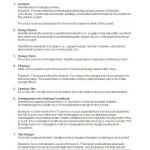Interior Design Jobs in Atlanta: A Comprehensive Overview
The city of Atlanta offers a vibrant and dynamic landscape for professionals in the field of interior design. The demand for qualified interior designers is driven by a growing population, a booming real estate market, and a sophisticated clientele seeking innovative and aesthetically pleasing spaces. This article provides a comprehensive overview of the interior design job market in Atlanta, exploring various career paths, necessary qualifications, key skills, and strategies for securing employment in this competitive industry.
The interior design profession encompasses a broad range of specializations, each catering to specific needs and project types. Understanding these diverse areas is crucial for aspiring designers seeking to pinpoint their niche and target their job search effectively. In Atlanta, opportunities exist across residential design, commercial design, hospitality design, healthcare design, and sustainable design, among others. Each of these specializations requires a unique skillset and knowledge base, making it essential for candidates to tailor their resumes and portfolios accordingly.
Residential interior design focuses on creating comfortable, functional, and aesthetically pleasing living spaces for homeowners. This specialization often involves collaborating closely with clients to understand their preferences, lifestyles, and budgetary constraints. Projects may range from single-room renovations to complete home overhauls. Commercial interior design, on the other hand, centers on designing workspaces, retail environments, and other commercial properties. The primary goal is to create spaces that are both visually appealing and conducive to productivity and efficiency. This often entails considering factors such as branding, ergonomics, and accessibility.
Hospitality design focuses on creating memorable and engaging experiences for guests in hotels, resorts, restaurants, and other hospitality establishments. This often involves a deep understanding of guest psychology and the ability to create spaces that are both luxurious and functional. Healthcare design plays a critical role in creating healing and supportive environments for patients, staff, and visitors in hospitals, clinics, and other healthcare facilities. This specialization requires a thorough understanding of healthcare regulations, infection control protocols, and the specific needs of patients with various medical conditions.
Sustainable design is becoming increasingly important across all sectors of the interior design industry. It focuses on incorporating environmentally friendly materials, energy-efficient technologies, and sustainable practices into design projects. This specialization requires a strong commitment to environmental stewardship and a deep understanding of green building principles.
Essential Qualifications for Interior Design Roles
The path to securing interior design jobs in Atlanta typically involves a combination of formal education, practical experience, and professional certifications. While specific requirements may vary depending on the employer and the specific role, certain qualifications are generally considered essential. A bachelor's degree in interior design is often the minimum educational requirement for entry-level positions. Programs accredited by the Council for Interior Design Accreditation (CIDA) are highly valued, as they ensure that students receive a comprehensive education in design principles, technical skills, and professional ethics.
In addition to a bachelor's degree, some employers may prefer candidates with a master's degree in interior design or a related field. A master's degree can provide a more advanced level of knowledge and skills, particularly in areas such as research, critical thinking, and design theory. Practical experience is another crucial component of a successful interior design career. Internships, entry-level positions, and volunteer work can provide valuable hands-on experience and help aspiring designers build their portfolios. A strong portfolio showcasing a range of design projects is essential for demonstrating one's skills and abilities to potential employers. Portfolios should include high-quality photographs or renderings of completed projects, as well as detailed descriptions of the design process and the challenges overcome.
Professional certifications can also enhance a candidate's credibility and marketability. The National Council for Interior Design Qualification (NCIDQ) certification is widely recognized as the gold standard for interior designers. To become NCIDQ certified, candidates must meet certain educational and experience requirements and pass a rigorous examination. Other relevant certifications may include LEED (Leadership in Energy and Environmental Design) accreditation, which demonstrates expertise in sustainable design practices. Software proficiency is essential for interior designers in today's digital age. Common software programs used in the industry include AutoCAD, Revit, SketchUp, Adobe Creative Suite (Photoshop, Illustrator, InDesign), and various rendering programs.
Strong communication and presentation skills are also crucial for success in interior design. Designers must be able to effectively communicate their ideas to clients, contractors, and other stakeholders. This includes the ability to create clear and concise presentations, write detailed specifications, and negotiate effectively. Furthermore, a keen eye for detail, strong organizational skills, and the ability to manage multiple projects simultaneously are essential for meeting deadlines and delivering high-quality work.
Key Skills for Success in the Atlanta Market
Beyond the fundamental qualifications, certain key skills are particularly valuable in the competitive Atlanta interior design job market. These skills can differentiate candidates and increase their chances of securing desirable positions. A strong understanding of design principles is paramount. This includes knowledge of color theory, space planning, lighting design, and the elements of design (line, shape, form, color, texture, and space). An ability to apply these principles effectively is essential for creating visually appealing and functional spaces.
Technical proficiency is also critical. This encompasses not only software skills but also knowledge of building codes, construction methods, and material specifications. The ability to create accurate drawings and specifications is essential for ensuring that design projects are executed correctly and efficiently. A strong understanding of project management is also highly valued. Interior designers are often responsible for managing all aspects of a design project, from initial concept development to final installation. This requires the ability to plan, organize, coordinate, and monitor all project activities, ensuring that they are completed on time and within budget. Problem-solving skills are essential for overcoming the inevitable challenges that arise during design projects. Designers must be able to identify problems quickly, analyze potential solutions, and implement effective strategies to resolve them.
Creativity and innovation are also highly sought after in the Atlanta market. Clients are increasingly seeking designers who can bring fresh, unique ideas to their projects. This requires the ability to think outside the box, experiment with new materials and technologies, and develop innovative design solutions. Networking and relationship-building skills are crucial for expanding one's professional network and securing new business opportunities. Attending industry events, joining professional organizations, and actively engaging with other designers and industry professionals can help build valuable relationships and open doors to new opportunities.
Strategies for Securing Interior Design Employment in Atlanta
Finding interior design jobs in Atlanta requires a strategic and proactive approach. Several steps can be taken to increase one's chances of success. The first step is to create a compelling resume and portfolio that highlight one's skills, experience, and accomplishments. Resumes should be tailored to each specific job application, emphasizing the skills and experience that are most relevant to the position. Portfolios should showcase a range of design projects, demonstrating one's versatility and creativity. A strong online presence is also essential. Creating a professional website or online portfolio can help showcase one's work to a wider audience. Utilizing social media platforms such as LinkedIn and Instagram can also be effective for networking and showcasing one's design skills.
Networking is a crucial component of a successful job search. Attending industry events, joining professional organizations, and contacting alumni from design schools can help build valuable relationships and open doors to new opportunities. Informational interviews can be a valuable way to learn more about specific companies and positions. Contacting designers or hiring managers at companies of interest and requesting an informational interview can provide valuable insights and help build relationships. Online job boards are a valuable resource for finding interior design jobs in Atlanta. Websites such as Indeed, LinkedIn, and Glassdoor often list a variety of interior design positions. Furthermore, consider reaching out to design firms directly, even if they are not actively advertising open positions. Many firms are willing to consider unsolicited applications from talented designers.
Prepare thoroughly for interviews. Research the company, understand the specific requirements of the position, and be prepared to discuss one's skills, experience, and design philosophy. Be prepared to present one's portfolio and discuss the design process behind each project. Follow up after the interview with a thank-you note or email. This demonstrates professionalism and reinforces one's interest in the position. Be persistent and patient. The job search process can be time-consuming and challenging, but with persistence and a proactive approach, one can increase their chances of securing a rewarding interior design career in Atlanta.

19 34 Hr Automotive Interior Design Jobs In Atlanta Ga

55k 91k Interior Plant Design Jobs In Atlanta Ga

Interior Designers In Atlanta Ga Design By S Art Jobs

Interior Talent On Linkedin Architecture Design Industry Career Jobs

Careers Gensler

Careers Perkins Will

Interior Designer Jobs In Atlanta Ga Jerycorporation

Cristy Nalampoon Ncidq On Linkedin Https Lnkd In E Kh85

Interior Designers

The Studio Social Is Giving Interior Design Experts Competitive Edge In Job Market








